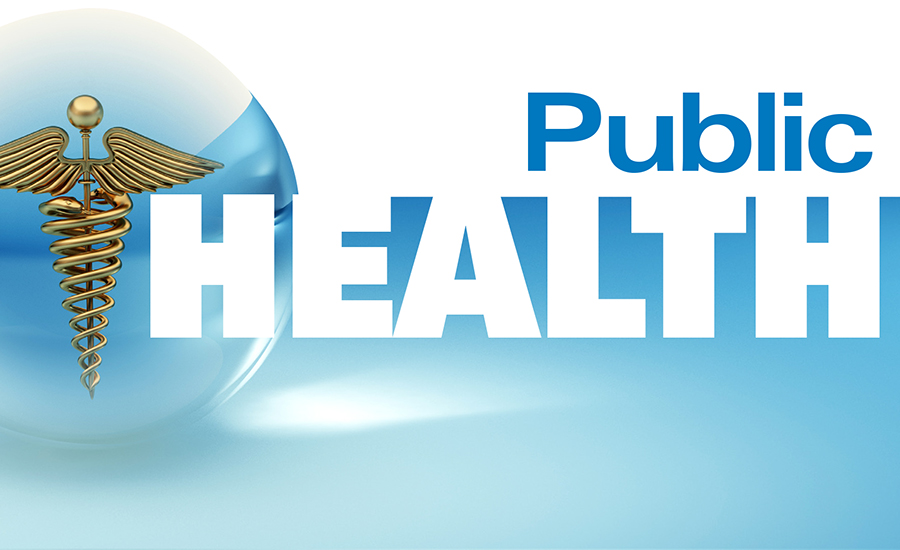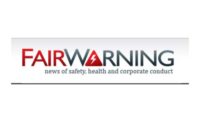A FairWarning story
Asbestos found in imported crayons and toy fingerprint kits

Posted with permission from FairWarning.org:
Asbestos has been found in several brands of children’s crayons and fingerprint kits made in China and sold in the U.S., according to tests commissioned by an environmental group.
The findings are detailed in a report being released today by the Environmental Working Group Action Fund. It marks the third time in 15 years that the cancer-causing substance has been detected in crayons or fingerprint toys marketed to children—apparently, due to the use of asbestos-contaminated talc.
Richard A. Lemen, an assistant U.S. Surgeon General during the 1990s and expert on asbestos, said it was “surprising … if not appalling,’’ that years after the previous discoveries asbestos could still be found in children’s products.
While acknowledging that asbestos concentrations in some of the products were “not very large,” Lemen said, “We should never introduce toxic substances to products that children will be playing with– particularly carcinogens such as asbestos.’’
The U.S. Consumer Product Safety Commission, which regulates the safety of toys and other consumer products, is taking the report “very seriously,’’ said agency spokesman Scott Wolfson. “CPSC staff is going to follow up on the products identified in their report,” he said. “The safety of children is of utmost importance to the agency.’’
Asbestos is a name for the fibrous form of a number of minerals that pose a risk of deadly illnesses if their microscopic, lung-scarring fibers are inhaled. Because it is occurs in some talc deposits, asbestos can turn up in consumer products without being deliberately added—such as when talc is used to make fingerprint powder, or as a stabilizer in crayons.
The report called on the CPSC to ban the use of talc in children’s products, such as crayons, chalk and fingerprint kits. In a statement reacting to the findings, U.S. Senators Edward J. Markey, D-Mass., and Dick Durbin, D-Ill., called for the CPSC to be provided ‘’the resources necessary to intercept these dangerous imported products before they reach the hands of children,’’ and said retailers should ‘’quickly cease sales and issue voluntary recalls of toxic products.”
The environmental group said it confirmed the presence of asbestos in crayons and fingerprint powders by testing samples at two analytical labs. Both labs detected asbestos in four of the Chinese-made crayon sets: Disney Mickey Mouse Clubhouse and Saban’s Power Rangers Super Megaforce crayons, both imported by Greenbriar International Inc.; Nickelodeon Teenage Mutant Ninja Turtle Crayons, imported by MII Inc.; and Amscan Crayons, imported by Amscan.
Both labs also found asbestos fibers in the fingerprint powders of two crime scene kits: EduScience Deluxe Forensics Lab Kit, which EWG said it purchased at a Toys”R”Us store; and Inside Intelligence Secret Spy kit, distributed by Buy-Rite and purchased on Amazon.com.
The report named two other products– EduScience Crime Lab fingerprint powder, and Disney Doc McStuffins Jumbo Crayons—in which asbestos was found by one lab but not confirmed by the other.
No asbestos was found in 19 other crime lab kits and 24 crayon sets, including several with the Crayola brand.
The report said it was uncertain if companies whose names or characters appeared on packages played any role in manufacturing the products, or simply licensed their trademarks.
Most of the companies involved in retailing or licensing the products cited by EWG – including The Walt Disney Co., Amazon.com, and Saban Brands – declined to comment or failed to respond to repeated requests for comment.
But Toys”R”Us said in a statement: “We require that every product we carry meets or exceeds all applicable state and federal laws, industry standards, codes and requirements. At this time, we are reviewing the referenced report, along with supplier test reports, to ensure full compliance to our strict safety standards.”
Dollar Tree Inc. – a retailer that, EWG said, sold three of the tainted crayon brands and imported two of the brands through its Greenbrier International subsidiary—also issued a statement responding to the report. “The safety of our customers is paramount and we work constantly to ensure our suppliers’ products are compliant and safe. To that end, we have a very robust and stringent test program” that includes working with testing companies accredited by the Consumer Product Safety Commission.
Randy Guiler, the Dollar Tree vice president who released the statement, said the crayon brands cited by EWG had gone through the company’s testing program. However, Guiler declined to comment on EWG’s test results and wouldn’t say whether Dollar Tree will retest the products or stop selling them.
David Bittler, a spokesman for Nickelodeon, said the Nickelodeon Teenage Mutant Ninja Turtle Crayons cited by EWG are a licensed product and not made by his company. Bittler said he “will contact” the manufacturer, but wouldn’t identify that business or say what further action Nickelodeon might take.
The EWG Action Fund is the lobbying arm of the Environmental Working Group, a Washington, D.C.-based environmental organization. The tests of crayons and crime scene kits is part of a broader asbestos awareness project carried out by the group with financial support from the American Association for Justice, the leading trial lawyers’ group.
Asbestos-related cancers mostly strike workers after years of manufacturing, installing or repairing asbestos products. But scientists say no level of asbestos exposure is considered safe, pointing to people afflicted with asbestos-related diseases despite what appeared to be minimal exposure. Among these are mesothelioma, a lethal cancer of the lining of the lung or abdomen that is predominantly caused by asbestos, and that typically shows up 30 to 40 years after initial exposure.
John M. Dement, a Duke University professor of occupational and environmental medicine, said that because asbestos in crayons is bound in the wax, ‘’probably the largest risk is going to be with the workers” who make the crayons, rather than the kids who use them.
But the fingerprint powder ‘’will probably present more of an inhalation hazard,” Dement said. “It doesn’t really take a lot …Percentages [of asbestos] that are in the 1 percent and less could still be important.”
“It’s certainly an unnecessary risk,’’ he said. ‘’Talc itself is not entirely innocuous, but having asbestos…is going to increase the cancer risk, of course.’’
The CPSC was alerted to asbestos in crayons in 2000, when the Seattle Post-Intelligencer commissioned tests of well-known U.S. brands–including Crayola, made by Binney and Smith, and Prang, made by Dixon Ticonderoga– that used talc from a suspect deposit in upstate New York.
The agency then confirmed with its own tests that there were trace amounts of asbestos in some of the crayons. In a report issued in August, 2000, the CPSC said the risk of children inhaling or ingesting asbestos fibers from crayons appeared to be ‘’extremely low.” Still, the agency said it got agreement from major manufacturers to reformulate their crayons. The “CPSC will continue to monitor children’s crayons to ensure that they do not present a hazard,” the report said. Asked about the statement, Wolfson, the CPSC spokesman, said the agency has been focused on regulating other safety risks to children in the years since.
Controversy over fingerprint kits erupted in 2007, when tests commissioned by the Asbestos Disease Awareness Organization found asbestos in a Chinese-made fingerprint kit licensed by CBS under the name of its popular TV series, CSI: Crime Scene Investigation. The kits were eventually recalled as part of a legal settlement.
About FairWarning
FairWarning (www.fairwarning.org) is a nonprofit, online news organization focused on issues of safety, health and government and business accountability. Click here to donate to FairWarning.
Looking for a reprint of this article?
From high-res PDFs to custom plaques, order your copy today!
 Myron Levin founded FairWarning after more than 20 years as a staff writer for the Los Angeles Times, where he was a member of the California investigations desk. He has won numerous honors and awards for his detailed investigations of health and safety matters, including an Alicia Patterson Foundation fellowship and the National Press Club’s Consumer Journalism Award. He has reported on the tobacco industry, auto and tire safety, and a variety of product liability issues. He likes hiking and playing racquetball, and he owns a minuscule share of a professional minor league baseball team. Myron is a member of FairWarning’s board of directors.
Myron Levin founded FairWarning after more than 20 years as a staff writer for the Los Angeles Times, where he was a member of the California investigations desk. He has won numerous honors and awards for his detailed investigations of health and safety matters, including an Alicia Patterson Foundation fellowship and the National Press Club’s Consumer Journalism Award. He has reported on the tobacco industry, auto and tire safety, and a variety of product liability issues. He likes hiking and playing racquetball, and he owns a minuscule share of a professional minor league baseball team. Myron is a member of FairWarning’s board of directors. FairWarning Assistant Editor Stuart Silverstein is a veteran reporter and editor who worked on the business, metro and national news staffs of the Los Angeles Times. He covered, among other beats, organized labor, economics and higher education. During his 32-year newspaper career, Stu also worked for dailies in Dallas, Atlanta and Buffalo. Stu has taught business journalism at USC. When he isn’t chasing stories, Stu enjoys seeing foreign films, studying foreign languages, working out and swimming. And he is interested in anything having to do with his hometown, Buffalo, N.Y.
FairWarning Assistant Editor Stuart Silverstein is a veteran reporter and editor who worked on the business, metro and national news staffs of the Los Angeles Times. He covered, among other beats, organized labor, economics and higher education. During his 32-year newspaper career, Stu also worked for dailies in Dallas, Atlanta and Buffalo. Stu has taught business journalism at USC. When he isn’t chasing stories, Stu enjoys seeing foreign films, studying foreign languages, working out and swimming. And he is interested in anything having to do with his hometown, Buffalo, N.Y.




